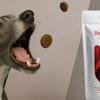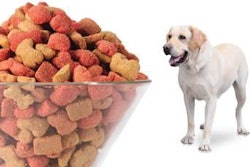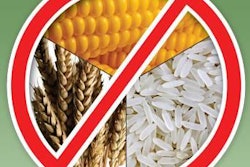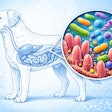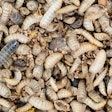Low-consistency, high-moisture feces have been observed in large dogs, compared to small dogs, and particularly in sensitive breeds (e.g., German Shepherd). The aim of this work was to determine if higher colonic protein fermentation is responsible for poorer fecal quality in large sensitive dogs. Twenty-seven bitches were allotted to four groups based on size and digestive sensitivity: small, medium, large tolerant and large sensitive. Five experimental diets varying in protein source—highly digestible wheat gluten (WG) vs. medium digestible poultry meal (PM) and protein concentration from 21.4 to 21.6 (LP) to 38.2 to 39.2% crude protein (HP)—were tested.
The PM diets resulted in greater fecal concentrations of ammonia, branched-chain fatty acids (BCFA), valerate, indole and butyrate than WG diets. Greater concentrations of ammonia, BCFA and valerate were found in the feces of dogs fed HP compared with LP diets. The concentrations of ammonia, valerate, phenol and indole in feces of large sensitive dogs were greater compared with the other groups. The Enterococcus populations were greater in feces of dogs fed with PMHP rather than WGLP diets. Urinary phenol and indole excretion was greater when dogs were fed PM than WG diets and HP than LP diets. Large sensitive dogs were prone to excrete a greater quantity of phenol in urine.
A diet formulated with highly digestible protein, such as WG, led to lower concentrations of protein-based fermentation products in feces together with improved fecal quality in dogs, especially in large sensitive ones. Poor fecal quality in large sensitive dogs could be partly related to the pattern of protein fermentation in the hindgut.
Source : J. Nery et al., 2012. Influence of dietary protein content and source on colonic fermentative activity in dogs differing in body size and digestive tolerance. J Anim Sci online February 2012. doi: 10.2527/jas.2011-4112J

